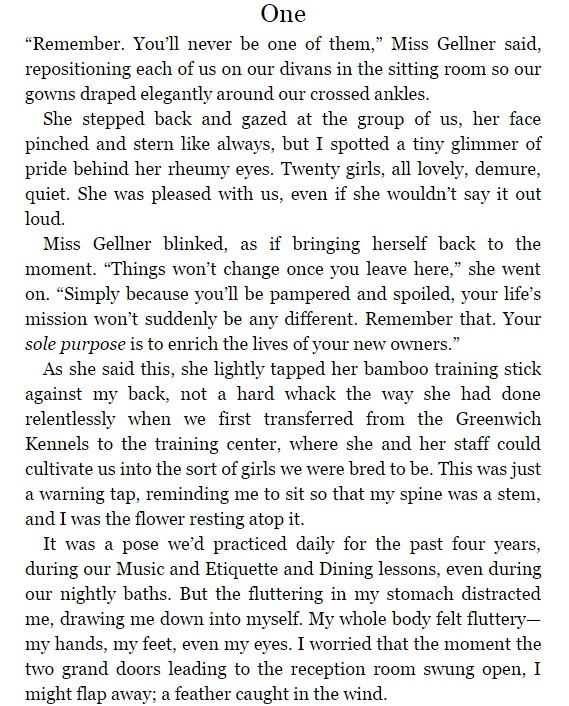
Kate Jarvik Birch’s PERFECTED and Immersing Your Audience In Fascinating Situations
Perfected begins with a delightfully disturbing scene that demonstrates the reader is in the hands of a capable storyteller who has a rip-roaring yarn to share. Take a look at the first few paragraphs:
The conceit of the book is that the protagonist, later named Ella, is a cloned 16-year-old girl who has been sold as a pet after recent legislation has made such things legal. Though cloned and genetically manipulated, Ella is, of course, a human being with hopes and desires that she discovers and explores through the course of the novel. (I don’t want to reveal more of the plot than I have to; it’s a fun ride that is surprising in spite of the appropriate parallels that Ms. Birch draws.)
Kate Jarvik Birch plays with very powerful themes and evokes such a cool tone-disturbing but fun-that the reader simply must read on to figure out what happens next. Perfected is in the same wonderful vein as the 2011 film Sleeping Beauty.
This film, obviously, is not for the young ones! In the first few minutes, the film plops you into a creepy, strange situation and hooks you. Can you ask for more from a story?
Perfected is also spiritually related to the 1990 Luc Besson film Nikita, in which a young woman is sent to a finishing school for spies instead of prison. Nikita must, of course, understand her new life and how her own desires relate to her obligations. (The film was remade in the United States as Point of No Return, starring the always excellent Bridget Fonda.)
All three of these works are excellent because the storytellers immediately immerse the reader (or viewer) in the protagonist’s very strange world. None of us will ever be cloned human pets trained in an awful finishing school, but just about everyone is protective of young women. We get over the shock of the disturbing nature of the story because our empathy meters are turned to eleven as the prospective buyers investigate Ella’s skills and beauty.
Further, Perfected (and the two films I mentioned) release exposition about the world in a fun manner that answers our questions before we ask them. Ms. Birch must let you know all about Ella’s world: that she essentially has the legal rights of a dog, that she was not taught to speak to children, that she was not taught to read or swim, but she can’t tell you everything all at once. She must unpeel the onion one layer at a time. (And the book just might make you cry; there’s no shame in that.) Essentially, Ms. Birch asks herself the question that all writers must confront: what does the reader need to know, and when must he or she know it? (Unfortunately, there is no one right answer to the question. But that would be nice, wouldn’t it?)
Another reason the book is so great is that Ms. Birch clearly loves her protagonist, but subjects her to constant indignity. This is a variation on the writing truism that you must “murder your darlings.” In order for there to be a story, Ella must suffer. She must be treated poorly and subjected to the kind of oppression that no one deserves. The great thing about this idea is that Ella regains these necessities little by little. This is the basic structure of a story. Every good story, anyway.
Ella’s new owner is a congressman, and one of the people who pushed through the legislation that made the “pet” program legal. The man is also…not the best guy ever. No one should be surprised that the congressman has more and different interest in his new sixteen-year-old human girl than people have in their rescue Chihuahua. Perhaps it’s a tangential point, but I found it fascinating that Ms. Birch, it seemed to me, held back in this area. Don’t get me wrong; the congressman is a creep and a weirdo and a creepy weirdo. But I wasn’t sure if…how can I say this…he would have the restraint he had.
Any quibbles I have with the book are trifles. Ms. Birch is brave enough to put her heroine into danger and to let her work her way out and so many interesting things happen to Ella that you can read the book in a single sitting. (Which I did.)


